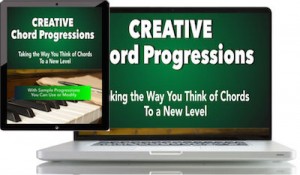There’s a little trick I use when I’m having one of those days where it seems I’m getting nothing done. It works best at the times in my life when I feel that I have nothing to show for how busy my day seems to be:
I put the simplest, easiest tasks into my daily to-do list, things that are going to get done no matter how my day turns out, and I click “Completed” on my phone once they’re done.
So in amongst the normal scheduled tasks that represent my day (9:30 am: Rehearsal, 11:00 am: Work on new choir piece; etc.), I put things on my to-do list like “9:00 am: Drive to rehearsal; 12:00: Lunch”; “2:30: Take break”, and so on. These little non-events that are going to happen no matter what seem silly to put on a to-do list, but I have a very important reason for putting them in there.
 Clicking that “Completed” button on my phone makes me feel like I’ve finished a task, and that makes me feel positive about my ability to get things done. My subconscious brain doesn’t seem to differentiate much between important tasks and unimportant ones. Just drawing a line through an event makes me feel good.
Clicking that “Completed” button on my phone makes me feel like I’ve finished a task, and that makes me feel positive about my ability to get things done. My subconscious brain doesn’t seem to differentiate much between important tasks and unimportant ones. Just drawing a line through an event makes me feel good.
How does this relate at all to songwriting? On those days when you can’t seem to make any progress on that song you’re working on, the best solution is to simplify until you’ve got a day you’re going to feel positive about.
Frustration and fear of failure are the root causes of writer’s block. They put your mind in a negative place, and you start to believe that you can’t finish what you’ve started.
Going on the assumption that your subconscious mind rewards you for finishing even a simple task, it makes sense, on days when you feel frustrated, to work on smaller tasks, ones for which you have a better chance of completion.
So how do you simplify songwriting on difficult days? Here are some ideas, things you can add to a to-do list:
- Listen to music. And don’t just passively listen — listen actively. Write down what it is you like about each song. Perhaps analyze the chord progressions, make a line drawing of the melody… anything that gets you listening with a purpose.
- Try some lyric-writing games, like perhaps this one: Take a book off your shelf, open to a random page, point to a word, and then write a line of lyric that starts with that word. Or try these games.
- Write some 3-chord progressions. Strum a C chord for 4 beats, then follow it with two other chords each strummed for 2 beats: Example: C Am Bb, or C Dm Bb, or C Ab7 G. How many can you come up with? Next, change the parameters: start on a chord other than C, but finish up with C. It’s a simple task, but you may wind up with something that will form the harmonic base for a new verse or chorus.
- Create short melodic fragments. Try this with any of the chord progressions you created in the previous tip. Sing a little melodic idea that fits the chords. Then try improvising a melodic fragment that sounds good as a follow-up line. No need to think about verse, chorus, or anything other than improvising something that works.
- Title brainstorm. Try thinking of great lines that would make a good song title. Don’t worry about what the lyric might be, just get some good titles written down. Then start at the top of your list, say the title, then say a line that might follow it. Or try to come up with a line of lyric, then follow it up with your title. Example Title: “Right In My Heart”. A suggestion for bit of lyric that follows it: “Right in my heart/ It’s where you’ll always be…” Or perhaps precede it with “You took your best shot, and you hit me/ Right in my heart…”
The benefit of these suggestions is that they don’t result in a completed song, nor do they pressure you to do that. Each time you complete a little fragment of something, you feel successful. You feel that you’re getting something done, and that’s what it’s all about.
And then, of course, the added benefit is that one of these resulting fragments can end up as the start of something more like a complete song, and then it’s really served a great purpose.
 Written by Gary Ewer. Follow Gary on Twitter
Written by Gary Ewer. Follow Gary on Twitter
 Are you looking for ways to make your progressions more creative? Tired of the same-old, same-old? This eBook, “Creative Chord Progressions“, is being offered free with your purchase of “The Essential Secrets of Songwriting” 10-eBook Bundle. Read more.
Are you looking for ways to make your progressions more creative? Tired of the same-old, same-old? This eBook, “Creative Chord Progressions“, is being offered free with your purchase of “The Essential Secrets of Songwriting” 10-eBook Bundle. Read more.










